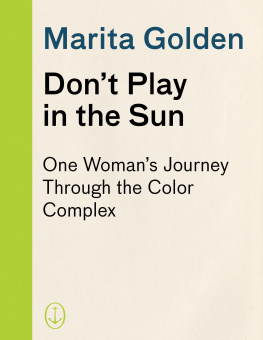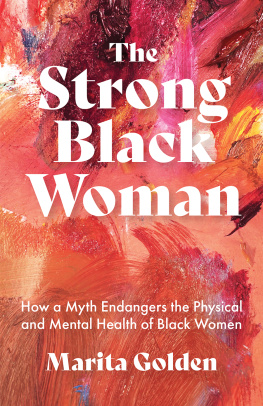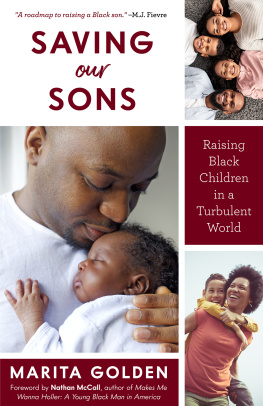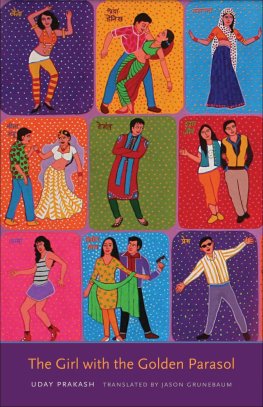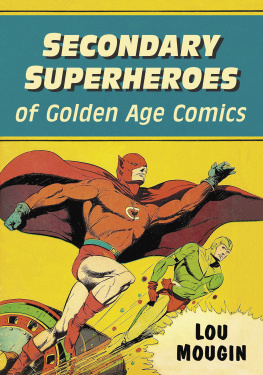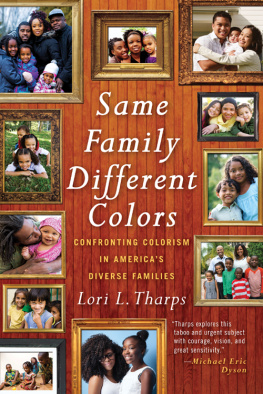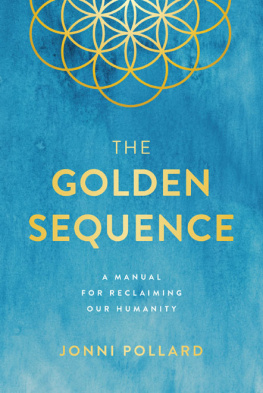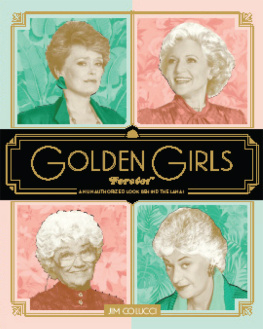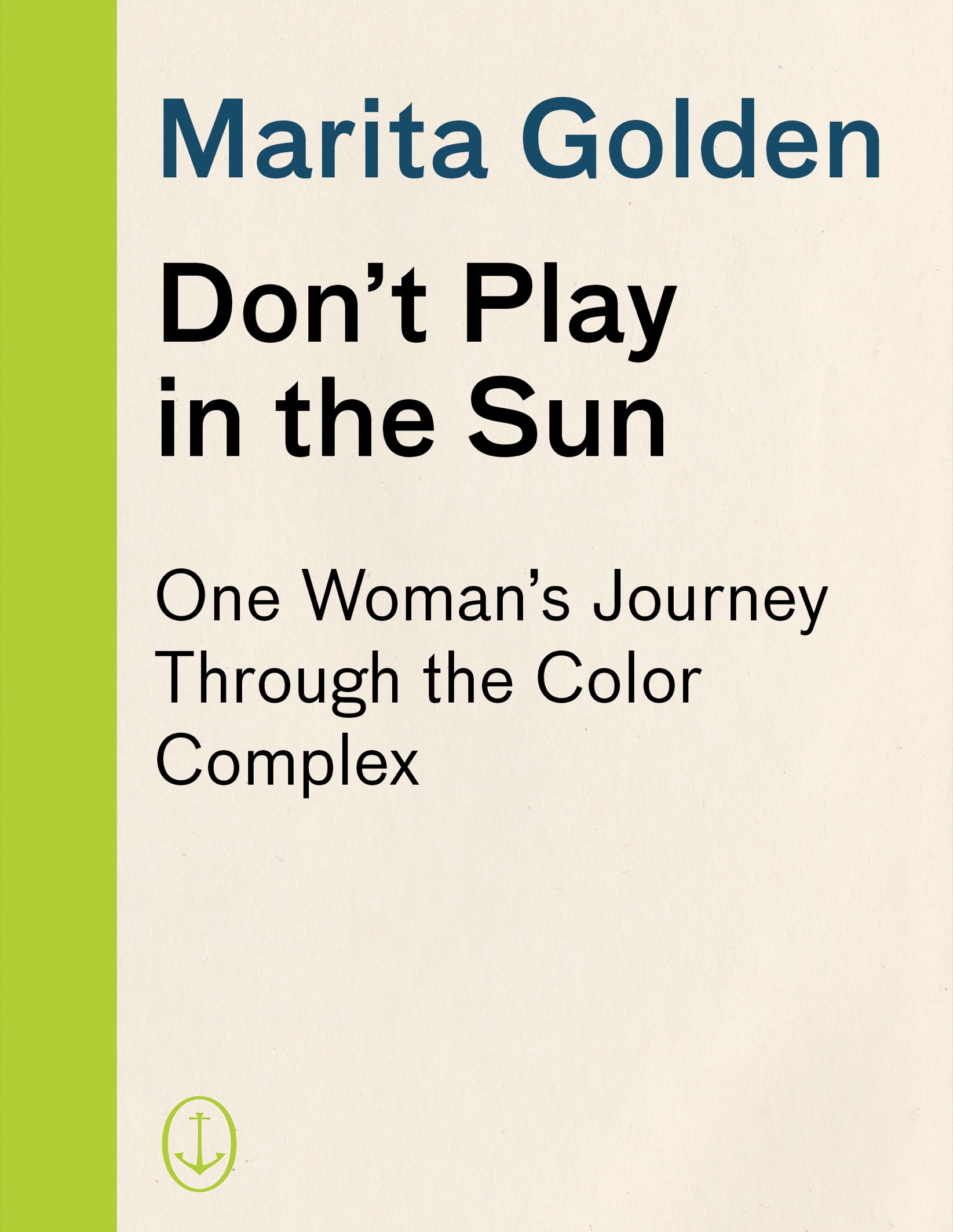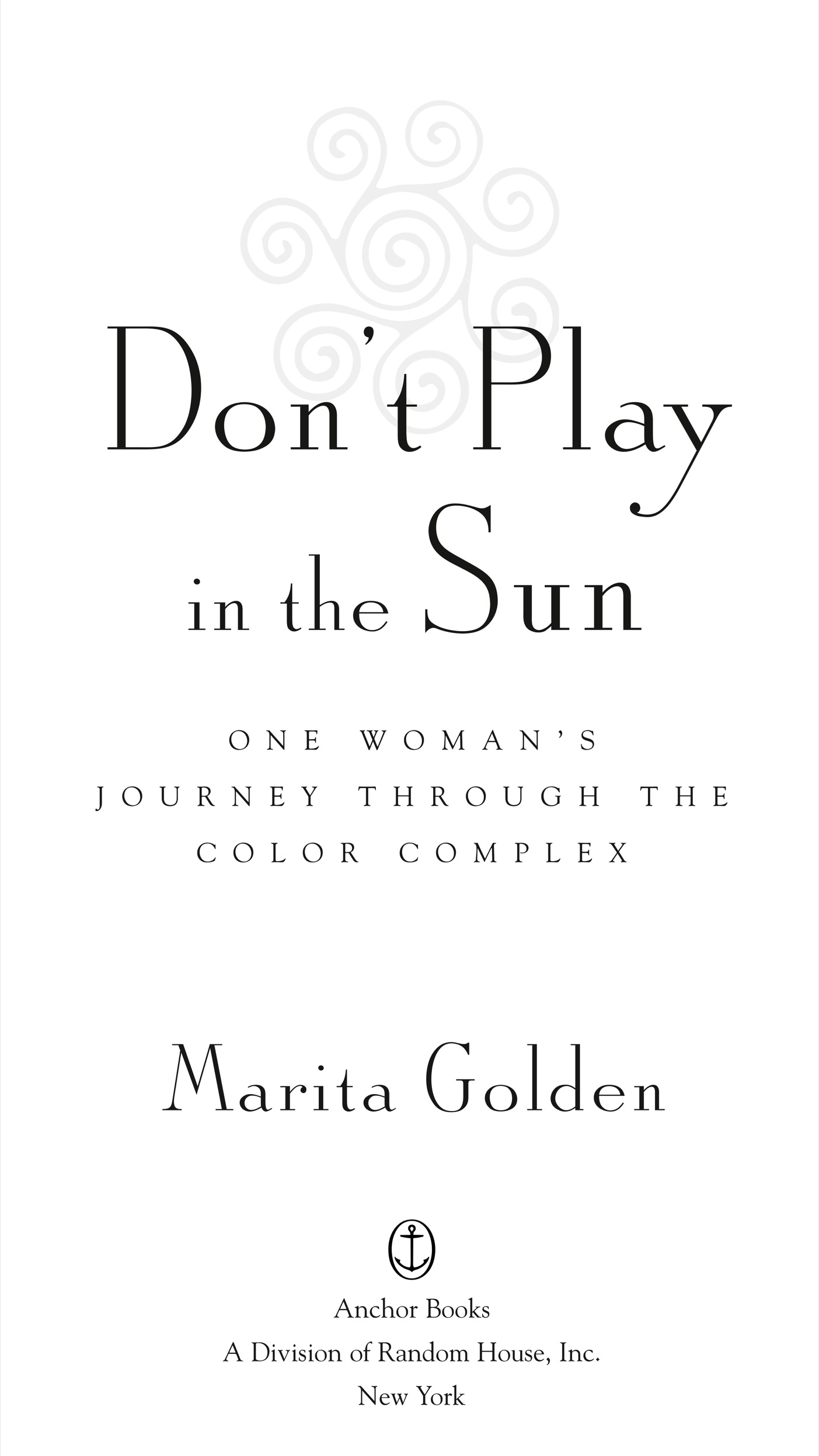Contents
Landmarks
Contents
Acclaim for Marita Goldens
Dont Play in the Sun
A uniquely personal memoir.... Using the dualism that existed in her home, she takes us through her life and describes how, even today, she is evaluated through the twin veils of race and color.
Ebony
As a youth in the early 1940s, I wrote a poem describing what I considered an ideal girl, [which] contained the lines: Her hair is long, black, and silky,/ and she is high, yellow, fair. Truly, none of us are spared the marks of oppression. But some of us evolve. In Dont Play in the Sun, Marita Golden displays with candor and insight her marvelous evolvement in the racially splintered concepts of color.
Derrick Bell, author of Ethical Ambition:
Living a Life of Meaning and Worth
A deeply personal account of growing up as a dark-skinned woman.... Goldens account of her personal journey to an appreciation of her looks offers a revealing look at a topic that is rarely discussed so openly.
Booklist
Marita Golden has written a brilliant, thought-provoking book. She voices the rage of brown and black girls who were taught to doubt their beauty... and she takes them with her on an emotional, transforming journey which celebrates self-love and self-acceptance. Ms. Golden is a healer, a griot attacking racism and self-hatred with wisdom, a lively spirit, and a generous heart. She encourages everyone to enjoy their days in the sun.
Jewell Parker Rhodes,
author of Douglasss Women
In this soul-searching, perceptive, and healing journey through the maze of the color complex, Marita Golden challenges us to jettison the mirrors of the past, see ourselves through ourselves and cherish the reflection.
Paula J. Giddings, Professor of Afro-American Studies, Smith College, and editor of Burning AllIllusions: Writings from The Nation on Race

Scenes from the Color Complex: (My Own)
Ah just couldnt see mahself married tono black man. Its too many black folks already.We ought to lighten up the race.
FROM THEIR EYES WERE WATCHING GOD BY ZORA NEALE HURSTON
This society measures the progress for the Negroby how fast he can turn White.
JAMES BALDWIN
I am ten, standing before the gilt-framed mirror over the mahogany cabinet where the silver and good china are stored. It is seven-thirty and my mother, my father, and I have finished dinner. I have washed the dishes. My parents are upstairs in their bedroom. I stand before the mirror as I do almost every night when I have the dining room to myself. My head is draped in four long silk scarves that belong to my mother. Scarves held in place with a bobby pin at the top of my head. Scarves that are a seductive color-drenched kaleidoscope whose silk fabric kisses my brown cheeks as I imagine a White girls hair must brush her skinwith the most awesome feeling of affirmation, beauty, and power. Standing before that mirror I am Snow White. I am Cinderella. My short, has-to-be-straightened-with-a-hot-comb hair has disappeared. My hands, like hungry butterflies, are lost in the soft, imaginary tendrils that I see with a contented, dangerous strangers eyes. With those eyes I convince myself that I can actually see the metamorphosis of the scarves into shoulder-length and even sometimes blond hair that frames my chubby brown face and that, at last, makes me real.
My mother, in a rare mood of satisfaction with my father, tells me, Your daddy is black, but he sure is handsome."
One summer afternoon when I am playing outside, racing the boys on our street to see who can reach the end of the block first (I do), my mother comes onto the porch and as I speed past shouts out to me, Come on in the houseits too hot to be playing out here. Ive told you dont play in the sun. Youre going to have to get a light-skinned husband for the sake of your children as it is.
In fifth grade we learn how to square dance and are assigned partners. My partner is Gregory, an olive-skinned White boy with raven-dark hair. In the center of the classroom, boys and girls face each other, giggly and jittery with anticipation. We nervously wait for the square dance music to begin. Gregory stands with a hand on his narrow blue-jeaned hips. His thin lips are curled in disgust at the sight of me. I am not the partner he wanted. When we square dance, we will have to touch. When we square dance, we will have to be close. I had liked Gregory until this moment, when his eyes calmly, purposely erase me and I stand squirming in my new dress worn just for this occasion. I glance down the aisle of boys, wondering who else could be my partner. When Miss Willis places the needle onto the record and the classroom fills with the sound of raucous, cheerful fiddle music, Gregory and I tentatively reach for each others hands. We are reaching for each other across a centuries-old chasm of history and hate and hope and fear. When he touches my fingers Gregory jumps back and ostentatiously wipes his hands on the side of his jeans, as though now his hand will never be clean again, and walks back to his desk and sits down. I stand partner-less, exposed as what I saw in Gregorys eyesnot a girl, not his classmate, but a black and ugly and dirty thing.
Gregory didnt want to touch me, and there were boys I was afraid to touch. Boys like Russell in junior high school. Russell of the light pretty brown skin, and the good curly hair. Russell, whom all the girls wanted and who, on the occasions his glance slid over my face (quickly, never long enough to give me hope), made me feel invisible.
I was a tomboy and a daydreamer. I was shy around boys and people I didnt know but confident when speaking up in class. I didnt have a boyfriend in high school until my junior year. His name was Jose. He was Cuban, and a redbone. Joses parents greeted me with politeness but not much warmth the day I met them. I knew immediately that they thought I was too dark for their son.
Perhaps I began scribbling the first lines of this book on the slate of my unconscious on the near-tropical summer day that my mother told me not to play in the sun.
I dont remember my response to my mothers admonition. Memory is at best a mere suggestion, at worst a fiction we would bet our lives on. No, I dont remember everything about the day my mother spoke a series of words that were both edict and verdict. Words that nested beneath the tender flesh of my heart and that grew like the hardiest kudzu, impervious and confident, with a will entirely their own.
There is much that I dont remember, but I can still recall the shame I felt that my mother in one sentence had judged the worth of my brown skin (negatively), dictated the necessary course of my matrimonial future, dabbled into the murky world of genetics and DNA, became complicit in the psychological oppression that victimized us both, and reinforced the larger culture and my communitys traditional command to girls who looked like me: If youre black, get back.
Of course, back then there was no way I could articulate or comprehend the breadth of what my mother had accomplished by her words. Still, I knew I had been given a life sentence. But I am sure that to spite my mother and to assert my will, headstrong and stubborn, I continued to play in the sun.

